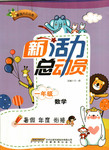题目内容
While the factors driving the modern family are many and complex-from the explosion of technology to the influx(涌入) of mothers into the workforce-parental fear may be at the heart of today's rushed(匆忙的) approach to child-rearing(养育孩子), some experts say.
Parents fear everything from media exposure to violence to peer pressure, says Alan Mirabelli, executive director of Ottawa think tank. Perhaps most of all, there's the fear that their kids won't be equipped to compete in the future.
Some might argue that today's parents are micromanagers because, unlike those who raised families during the Depression and World War Ⅱ, they don't have enough real worries. But Mirabelli says it comes down to a different context and a different set of challenges.
He notes that while parents 25 or 30 years ago had the modest goals of providing their offspring with more than they had, the current driving force is the desperation to equip kids for a dog-eat-dog world.
They demand tougher schools, a heftier(容量更大的) curriculum and standardized testing to measure performance. Outside the school system, they fill in the gaps with tutoring, music lessons, art classes, gymnastics and hockey. For those who can't afford it,_there's the additional stress and fear that their kids don't stand a chance.
David Elkind, a renowned child psychologist and author of The Hurried Child, says hyper-parenting is a reaction to a world changing so fast and we have no idea how to prepare kids for it. Parents can't envision the society their kids will inhabit as adults, so they try to cover all the possibilities, cramming in as much as possible and operating on the principle that earlier is better. “This works against the notion of let children be children,”said David Elkind.
6. The biggest fear of parents is that their children________.
A. will change for the worse because of media influence
B. will get involved in violence
C. will fall behind in future competition
D. will compare themselves with peers
7. David Elkind holds the view that________.
A. parents should equip their kids for a changing world
B. parents shouldn't worry too much about their children
C. parents shouldn't destroy the childhood of their children
D. it's better for parents to foresee the future society
8. We can conclude from the text that________.
A. children today can't enjoy a real childhood
B. children today are better equipped for the future
C. parents today actually have no real worries
D. parents today face more challenges actually
9. What would be the BEST title for the text?
A. Modern family is becoming complex
B. The harm of rushed approach to child-rearing
C. How to equip children for the future
D. The parents are worried, so the children are hurried
10. The underlined word “it” in the fifth paragraph probably refers to________.
A. the tough education
B. a good environment
C. a colourful after-school activity
D. a rich and happy life
6. 解析:选C。细节理解题。文章第二段列举了当今父母的种种担心,但最担心的还是孩子不能应付未来的竞争。
7. 解析:选C。推理判断题。从文章最后一段可知,David Elkind 认为当今的父母不重视孩子的天性,他认为孩子应该享受童年的快乐。
8. 解析:选A。推理判断题。综合分析文章可知,父母的担心转化为孩子的压力,因此孩子无法享受童年的乐趣。
9. 解析:选D。主旨大意题。文章介绍父母由于内心的担心,因此给孩子很多的压力,使他们无法享受童年的乐趣,“父母担心,孩子忙碌”成为当今社会的独特现象,因此D项作为文章的标题最佳。
10. 解析:选A。词义猜测题。父母让孩子在学校接受严格的教育,课外又给他们安排各种活动,因此A项最能概括前面的内容。

 新活力总动员暑系列答案
新活力总动员暑系列答案 龙人图书快乐假期暑假作业郑州大学出版社系列答案
龙人图书快乐假期暑假作业郑州大学出版社系列答案When I was seven my father gave me a Timex, my first watch. I loved it, wore it for years, and haven’t had another one since it stopped ticking a decade ago. Why? Because I don’t need one. I have a mobile phone and I’m always near someone with an iPod or something like that. All these devices(装置)tell the time — which is why, if you look around, you’ll see lots of empty wrists; sales of watches to young adults have been going down since 2007.
But while the wise have realized that they don’t need them, others—apparently including some distinguished men of our time—are spending total fortunes on them. Brands such as Rolex, Patek Philippe and Breitling command shocking prices, up to £250,000 for a piece.
This is ridiculous. Expensive cars go faster than cheap cars. Expensive clothes hang better than cheap clothes. But these days all watches tell the time as well as all other watches. Expensive watches come with extra functions — but who needs them? How often do you dive to 300 metres into the sea or need to find your direction in the area around the South Pole? So why pay that much of five years’ school fees for watches that allow you to do these things?
If justice were done, the Swiss watch industry should have closed down when the Japanese discovered how to make accurate watches for a five-pound note. Instead the Swiss reinvented the watch, with the aid of millions of pounds’ worth of advertising, as a message about the man wearing it. Rolexes are for those who spend their weekends climbing icy mountains; a Patek Philippe is for one from a rich or noble family; a Breitling suggests you like to pilot planes across the world.
Watches are now classified as “investments”(投资). A 1994 Patek Philippe recently sold for nearly £350,000, while 1960s Rolexes have gone from £15,000 to £30,000 plus in a year. But a watch is not an investment. It’s a toy for self-satisfaction, a matter of fashion. Prices may keep going up—they’ve been rising for 15 years. But when fashion moves on, the owner of that £350,000 beauty will suddenly find his pride and joy is no more a good investment than my childhood Timex.
【小题1】The sales of watches to young people have fallen because they______.
| A.have other devices to tell the time | B.think watches too expensive |
| C.prefer to wear an iPod | D.have no sense of time |
| A.people dive 300 metres into the sea |
| B.expensive clothes sell better than cheap ones |
| C.cheap cars don’t run as fast as expensive ones |
| D.expensive watches with unnecessary functions still sell |
| A.It targets rich people as its potential customers. |
| B.It’s hard for the industry to beat its competitors. |
| C.It wastes a huge amount of money in advertising. |
| D.It’s easy for the industry to reinvent cheap watches. |
| A.Timex or Rolex? | B.My Childhood Timex |
| C.Watches? Not for Me! | D.Watches — a Valuable Collection |
Makoto、Mr. Zheng、Mr. Zhu、Jack 和Xiao Wang 正在广州寻找合适的餐厅,第1--5题是对他们个人情况的介绍。阅读下列餐厅的信息(A、B、C、D、E、F), 选出符合他们各人需要的最佳选择。选项中有一项是多余的。
1. Makoto is a Japanese tourist who has stayed in Guangzhou for a few days. He wants to make a tour of North China but unfortunately he has no time. So he would like to find a restaurant where he can taste northern food and experience the life in the north.
2. Mr. Zheng was born in Hunan but went to Japan at an early age. This time he came to Guangzhou to deal with some business affairs. Coming back to his homeland after being away for about 20 years, he hopes to find a restaurant serving food of his home town.
3. It is the first time for Mr. Zhu, who comes from the northeast of China, to visit Guangdong Province. He is interested in traditional Ca ntonese food and Cantonese lifestyle.
ntonese food and Cantonese lifestyle.
4. Jack is a successful businessman. He is flying to Guangzhou to meet some people, who are likely to sign a contract with him. He wants to find a high quality restaurant. Of course, it is the quality rather than the price that he cares about.
5. Xiao Wang, a migrant worker in Guangzhou, plans to hold a party with his 10 friends. All of them are fond of the Sichuan cuisine. Xiao Wang hopes to spend less than 600 yuan for the dinner.
| A Nanhai Yucun Restaurant Founded in 1986, Nanhai Yucun Restaurant has always been one of the gourmets’ choices in Guangzhou. Prices are high, but so is the quality. Just look at the gust list; the King and Queen of Spain, South Korea’ s  Prime Minister and his wife have eaten here, along with lots of local famous people. Prime Minister and his wife have eaten here, along with lots of local famous people. |
| B Dongbeiren Dongbeiren is meant for northerners. The decoration is basically red—from the paper cuts and the curtains to the Kang (a bed with a table where people can sit comfortably without shoes and with their legs folded). It is perh  aps a way to remind the northerners of home or for other people to get in touch with the north. aps a way to remind the northerners of home or for other people to get in touch with the north. |
| C Taotaoju Restaurant Taotaoju Restaurant is one of Guangzhou’s most well-known traditional Cantonese restaurants, located in a historic building in the heart of the city’s Xiguan District. You can’t get any more traditional Guangzhou than this, which is a great place for dim sun and seafood. You haven’t lived in Guangzhou until you’ve eaten dim sum in a true local place like Taotaoju. It’s also a popular spot for parties. |
| D Chongqing Xiaodongtian Restaurant It’s one of the top Sichuan cuisine restaurants in Guangzhou, featuring Chongqing flavor. It is a group of chain restaurants in Guangzhou. The food is Sichuan style, but the decoration and surroundings are a bit old. Like most Sichuan restaurants, the pleasant smell of their traditional hot pot spreads throughout the whole place. Food here is medium-priced, around 50 RMB per person. |
| E Maojia Reastaurant Maojia Reastaurant is a local favorite for strong-flavored Hunan dishes. It has a strong cultural atmosphere related to Chairman Mao and also introduces Maojia dishes characteristic of tasty Hunan local flavors, which are a bit softer than the traditional Hunan flavor. |
| F Enmi Japanese Reastaurant The decoration here is beautiful and peaceful. A small “courtyard of bamboo” is refreshing while the space between tables is large and comfortable. The diverse sashimi (raw fish slices) is a must-try here. The food, however, is served slow and the regulated tow hours for ordering is strange. |
根据短文内容,从短文后的选项中选出能填入空白处的最佳选项。选项中有两处为多余选项。
There was once a lonely girl who longed so much for love. One day while she was walking in the woods she found two starving birds._【小题1】____ She cared them with love and the birds grew strong. Every morning they greeted her with a wonderful song. The girl felt the great love from the birds.
__【小题2】___. The larger and the stronger of the two birds flew from the cage. The girl was so frightened that he would fly away. As he flew close, she grasped him wildly. Her heart felt glad at her success in capturing him. _【小题3】_____. She opened her hand and stared in horror at the dead bird. Her desperate love had killed him.
She noticed the other bird moving back and forth on the edge of the cage. She could feel his great need for freedom. He needed to fly into the clear, blue sky. __【小题4】____. The bird circled once, twice, three times.
The girl watched delightedly at the bird’s enjoyment. ____【小题5】______ .She wanted the bird to be happy. Suddenly the bird flew closer and landed softly on her shoulder. It sang the sweetest songs that she had ever heard.
The fastest way to lose love is to hold on it too tight, while the best way to keep love is to give it wings!
| A.She gave them some delicious food and left. |
| B.Suddenly she felt the bird go softly. |
| C.Her heart was no longer concerned with her loss. |
| D.One day she left with the two birds at home alone. |
F. One day the girl left the door of the cage open.
She lifted him from the cage and threw him softly into the air.
